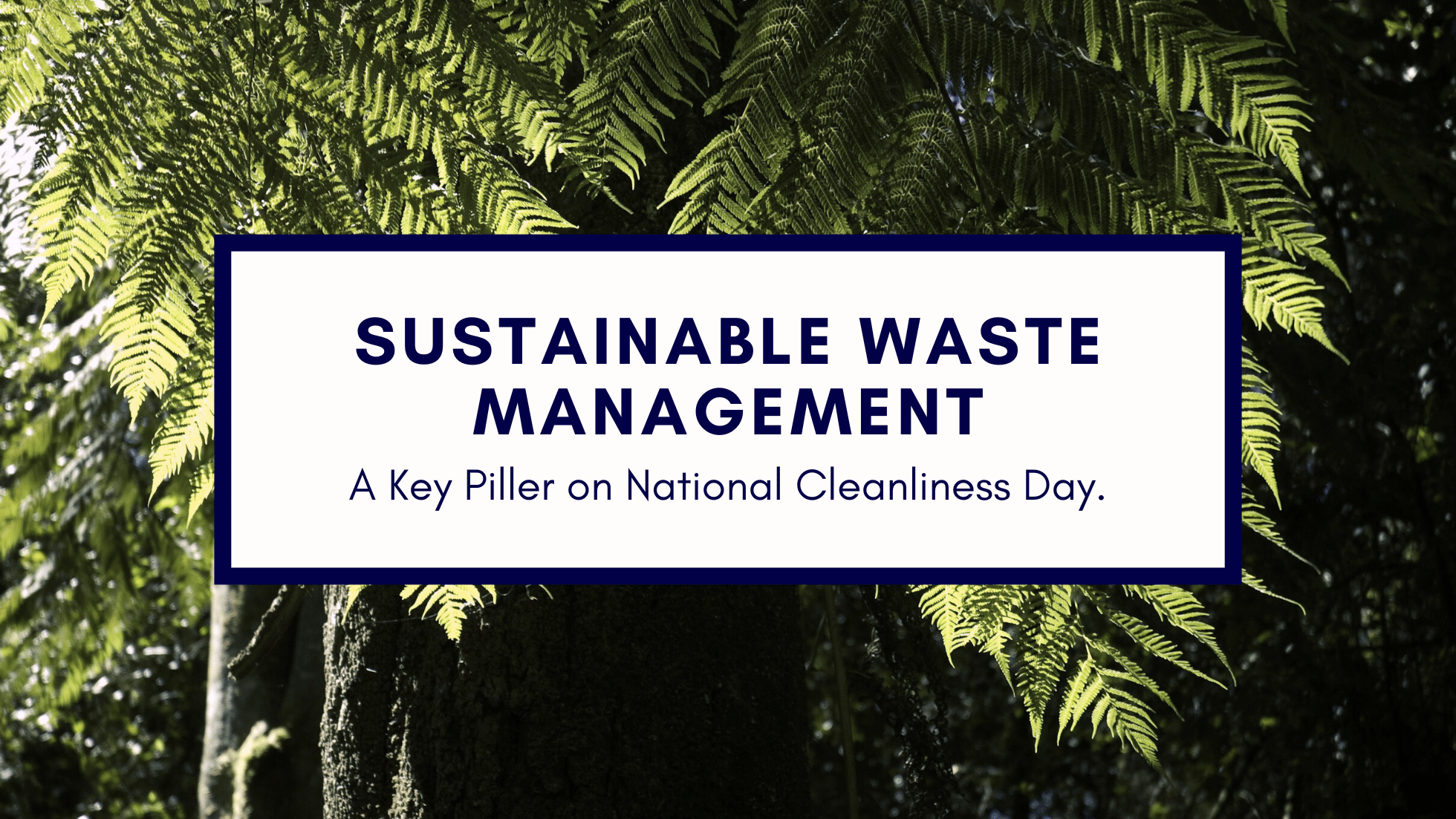India, a land of diverse cultures, traditions, and natural beauty, has witnessed remarkable transformations over the years. One of the most significant initiatives that has gained momentum in recent times is the Swachh Bharat Abhiyan, or the Clean India Mission. Underpinning this nationwide movement is the concept of National Cleanliness Day, a day dedicated to raising awareness about the importance of cleanliness and hygiene. As we delve into the essence of this movement, we cannot ignore a fundamental aspect that is often overlooked: sustainable waste management. In this blog, we will explore the crucial role of sustainable waste management practices and how they contribute to a cleaner and greener India.
The Swachh Bharat Abhiyan: A Pioneering Movement
The Swachh Bharat Abhiyan, launched in 2014 by Prime Minister Narendra Modi, marked a significant turning point in India’s journey towards cleanliness and sanitation. It aimed to make India open defecation-free, eradicate manual scavenging, and promote sustainable solid waste management practices. This mission not only targeted urban areas but also emphasized the importance of cleanliness in rural regions. One of the key pillars of the Swachh Bharat Abhiyan was the promotion of sustainable waste management practices, recognizing that waste management is a critical component of overall cleanliness.
The Waste Challenge in India
India is a country with a massive population, and with this demographic advantage comes the challenge of managing waste effectively. Over the years, urbanization and industrialization have led to increased waste generation, placing a tremendous burden on waste management systems. Historically, waste disposal in India often involved open dumping and burning, leading to environmental degradation and health hazards.
The need for sustainable waste management practices became evident as cities grappled with overflowing landfills and pollution. Landfills, once considered a solution, began to overflow, and untreated waste found its way into rivers, soil, and the air. This posed a significant threat to public health and the environment.
Sustainable Waste Management: The Need of the Hour
Sustainable waste management practices encompass a range of strategies that focus on reducing waste generation, recycling, and disposing of waste in an environmentally friendly manner. These practices align with the principles of reducing, reusing, and recycling, commonly known as the “3Rs.” Let’s explore how each of these aspects contributes to a cleaner and greener India:
1. Waste Reduction:
- Source Separation: Encouraging citizens to segregate waste at the source into categories like biodegradable and non-biodegradable waste reduces the overall waste volume.
- Minimizing Single-Use Plastics: Implementing measures to reduce the usage of single-use plastics, such as bags and bottles, helps decrease plastic waste.
2. Waste Reuse:
- Composting: Promoting the composting of organic waste at the household and community levels not only reduces waste but also creates valuable compost for agricultural use.
- Upcycling: Encouraging creative reuse of materials, where items are transformed into new products, reduces the need for new resources.
3. Waste Recycling:
- E-Waste Recycling: Proper disposal and recycling of electronic waste prevent hazardous materials from contaminating the environment.
- Paper and Plastic Recycling: Establishing efficient recycling systems for paper and plastics reduces the demand for virgin materials and conserves resources.
4. Responsible Disposal:
- Landfill Management: Implementing modern landfill management practices, such as waste compaction and leachate treatment, reduces the environmental impact of landfills.
- Waste-to-Energy (WtE): Exploring WtE technologies can help generate energy from non-recyclable waste, reducing the burden on landfills and providing a sustainable energy source.
The Impact of Sustainable Waste Management
1. Environmental Benefits:
Sustainable waste management practices help reduce the pollution of air, soil, and water. Proper waste disposal prevents toxic substances from contaminating the environment and reduces greenhouse gas emissions. Recycling conserves resources and reduces the energy required to manufacture new products.
2. Health Benefits:
Effective waste management significantly improves public health by reducing exposure to hazardous waste and preventing the spread of diseases carried by vectors like flies and rodents. Cleaner streets and neighborhoods contribute to a better quality of life.
3. Economic Benefits:
Sustainable waste management practices can lead to economic benefits. Recycling and waste-to-energy initiatives create job opportunities and can generate revenue for municipalities. Moreover, reducing waste generation can lead to cost savings for households and businesses.
4. Resource Conservation:
Recycling and reusing materials reduce the need for extracting and processing new resources. This conserves valuable raw materials and reduces the ecological footprint of resource-intensive industries.
Case Studies in Sustainable Waste Management
1. Indore’s Waste Segregation Model:
Indore, often hailed as India’s cleanest city, implemented a successful waste segregation model. Citizens are encouraged to separate waste at the source into biodegradable and non-biodegradable categories. This model significantly reduced the volume of waste going to landfills and contributed to a cleaner city.
2. Vellore’s E-Waste Management Initiative:
Vellore in Tamil Nadu initiated a comprehensive e-waste management program. Collection centers were set up to collect electronic waste, which was then sent to authorized recycling units. This initiative not only reduced environmental pollution but also created employment opportunities.
3. Alappuzha’s Organic Waste Management:
The Alappuzha municipality in Kerala adopted an innovative approach to organic waste management. Households and hotels were encouraged to convert organic waste into biogas and compost. This reduced the burden on landfills and generated clean energy.
National Cleanliness Day: Promoting Sustainable Waste Management
National Cleanliness Day serves as a reminder of the ongoing efforts to create a cleaner and healthier India. It is a day when individuals, communities, and organizations come together to participate in cleanliness drives, awareness campaigns, and sustainable waste management activities.
On this day, citizens can pledge to reduce waste generation, practice responsible disposal, and actively engage in recycling and composting. Communities can organize clean-up drives in public spaces, rejuvenate local parks, and spread awareness about the importance of sustainable waste management.
Conclusion
Sustainable waste management practices are undeniably a crucial pillar of National Cleanliness Day and the broader Swachh Bharat Abhiyan. As we celebrate this day and reflect on the importance of cleanliness, let us remember that responsible waste management is not just a duty; it is our collective responsibility.
By embracing sustainable waste management practices, India can pave the way for a cleaner, greener, and healthier future. It is a journey that requires the active participation of every citizen, community, and organization. So, let’s reduce, reuse, recycle, and responsibly dispose of waste, not just on National Cleanliness Day but every day, to build a sustainable and Swachh Bharat. Remember, a cleaner India begins with you.








